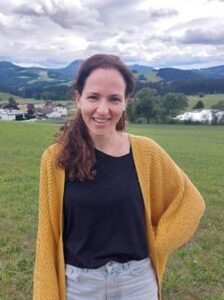 The human gut microbiome, and its metabolic activity in particular, have been implicated in a wide range of disease states, including metabolic disorders, inflammatory bowel diseases, and colorectal cancer. This growing appreciation for the impact of the gut microbiome’s metabolism on human health has given rise to studies that generate both microbiome and metabolome high-throughput data from human gut microbiome samples. Truly integrated analysis of both omic datasets, however, remains a challenging task. My research aims to develop new frameworks for analyzing and integrating these datasets using a combination of machine learning, metabolic modeling, and network analysis. I’ll specifically present two projects: the first evaluates the robustness of microbiome-metabolome associations using machine learning and meta-analysis models; the second aims to identify “multi-omic modules” that capture both cross-omic associations and associations with disease simultaneously. Taken together, these frameworks can enhance our understanding of microbiome-metabolome connections and equip the microbiome research community with novel methods for such integrated data analysis.
The human gut microbiome, and its metabolic activity in particular, have been implicated in a wide range of disease states, including metabolic disorders, inflammatory bowel diseases, and colorectal cancer. This growing appreciation for the impact of the gut microbiome’s metabolism on human health has given rise to studies that generate both microbiome and metabolome high-throughput data from human gut microbiome samples. Truly integrated analysis of both omic datasets, however, remains a challenging task. My research aims to develop new frameworks for analyzing and integrating these datasets using a combination of machine learning, metabolic modeling, and network analysis. I’ll specifically present two projects: the first evaluates the robustness of microbiome-metabolome associations using machine learning and meta-analysis models; the second aims to identify “multi-omic modules” that capture both cross-omic associations and associations with disease simultaneously. Taken together, these frameworks can enhance our understanding of microbiome-metabolome connections and equip the microbiome research community with novel methods for such integrated data analysis.
Speaker: Efrat Muller
Affiliation: Prof. Elhanan Borenstein Lab, Tel Aviv University
Position: Doctoral Candidate
Hosted by: Jennifer Dawkins, Gerber Lab
Date: Monday January 22, 2024
Time: 10:00AM-11:00AM ET
Zoom: https://partners.zoom.us/j/82163676866
Meeting ID: 821 6367 6866
Links:
Google Scholar
Linkedin
Efrat Muller is a Computer Science PhD student studying computational methods for human microbiome research, under the supervision of Professor Elhanan Borenstein at Tel Aviv University. Prior to her PhD, she worked in product management and data analysis positions at Medial EarlySign(a startup in the digital health industry) and at Intel Corporation’s Big Data and Machine Learning group. Efrat completed a B.Sc. and M.Sc. in computer science with honors from Ben-Gurion University. She is generally enthusiastic about any intersection of computer science, machine learning, healthcare and well-being.
Efrat received the EMEA Google Generation Scholarship (2022), Edmond J. Safra Center Excellent Research Student Prize (2022), Naamat scholarship for female PhD students (2022), and prizes for excellence in teaching (Discrete Math course for CS students, 2019-2021).
